
Rashes are a common skin condition that can affect people of all ages. It can be defined as a change in the skin’s color, texture, or appearance. Rashes are accompanied by itching, pain, or other discomforts. Rashes can be caused by a variety of factors, including allergies, infections, irritants, autoimmune disorders, medications, heat, and sweat.
Causes of Rashes:
- Allergies: When the immune system reacts to a substance it considers a threat. Common allergens include pollen, pet dander, and certain foods.
- Infections: Infections caused by viruses, bacteria, or fungi can also cause rashes. Examples include chickenpox, measles, and ringworm.
- Contact with irritants: Exposure to certain chemicals, fabrics, or other irritants can cause rashes. Examples include poison ivy, latex, and detergent.
- Autoimmune disorders: Some autoimmune disorders can cause rashes, including psoriasis and lupus.
- Medications: Certain medications can cause rashes as a side effect. These include antibiotics, anticonvulsants, and chemotherapy drugs.
- Heat and sweat: Heat and sweat can cause rashes, especially in areas where skin rubs against skin. This is common in athletes and people who are overweight.
Types of Rashes:

- Eczema: A chronic skin condition that causes red, itchy, and inflamed skin. It can occur anywhere on the body, but is most common on the face, hands, and feet.
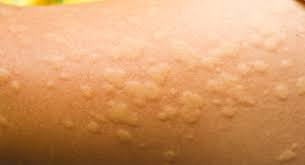
- Hives: Hives are raised, red bumps that can appear anywhere on the body. They are usually caused by an allergic reaction.
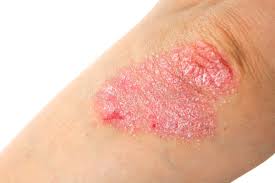
- Psoriasis: A chronic skin condition that causes thick, scaly patches of skin. It can occur anywhere on the body, but is most common on the elbows, knees, and scalp.

- Rosacea: A chronic skin condition that causes redness and swelling on the face. It can also cause small, red bumps and visible blood vessels.
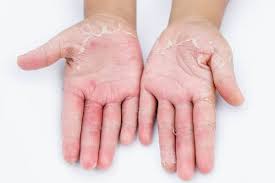
- Contact dermatitis: A rash caused by exposure to an irritant or allergen. It can occur anywhere on the body, but is most common on the hands and face.
Treatment: Treatment for rashes depends on the cause of the rash. Mild rashes can be treated with over-the-counter creams and lotions. More severe rashes may require prescription medications or other treatments. It is important to avoid scratching the rash, as this can cause further irritation and infection. While there are many medications available to treat rashes, there are also natural remedies that can be effective.
Natural ways to treat rashes:
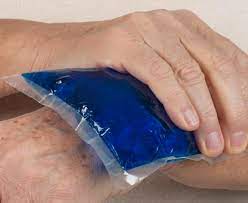
- Cool compresses: Applying cool compresses to the affected area can help to reduce itching and inflammation. You can use a clean cloth soaked in cool water, or add ice cubes to the water for a more intense cooling effect.

- Aloe vera: Aloe vera is a natural anti-inflammatory that can help to soothe and heal rashes. Apply a small amount of aloe vera gel directly to the affected area several times a day.

- Oatmeal: Oatmeal is a natural anti-inflammatory that can help to relieve itching and inflammation. Add one cup of oatmeal to a warm bath and soak for 15-20 minutes

- Chamomile: Chamomile is a natural anti-inflammatory that can help to soothe and heal rashes. You can make a chamomile tea and apply it to the affected area with a cotton ball, or use a chamomile cream or ointment.

- Tea tree oil: Tea tree oil has antibacterial and anti-inflammatory properties that can help to reduce inflammation and soothe rashes. Dilute tea tree oil with a carrier oil, such as coconut oil, and apply it to the affected area.
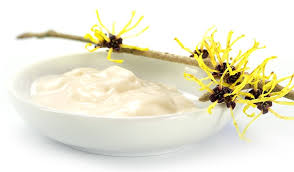
- Witch hazel: Witch hazel is a natural astringent that can help to reduce inflammation and soothe rashes. Apply witch hazel to the affected area with a cotton ball several times a day.

- Coconut oil: Coconut oil has anti-inflammatory and moisturizing properties that can help to soothe and heal rashes. Apply a small amount of coconut oil directly to the affected area several times a day.
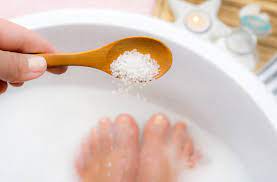
- Epsom salt: Epsom salt is a natural anti-inflammatory that can help to reduce itching and inflammation. Add one cup of Epsom salt to a warm bath and soak for 15-20 minutes.

- Apple cider vinegar: Apple cider vinegar has antibacterial and anti-inflammatory properties that can help to reduce inflammation and soothe rashes. Dilute apple cider vinegar with water and apply it to the affected area with a cotton ball.

- Calendula: Calendula is a natural anti-inflammatory that can help to soothe and heal rashes. You can make a tea from calendula flowers and apply it to the affected area with a cotton ball, or use a calendula cream or ointment.
In conclusion, there are many natural remedies that can help to treat rashes. However, it’s important to consult with a healthcare professional if your rash persists or worsens, or if you experience other symptoms such as fever, pain, or difficulty breathing.
